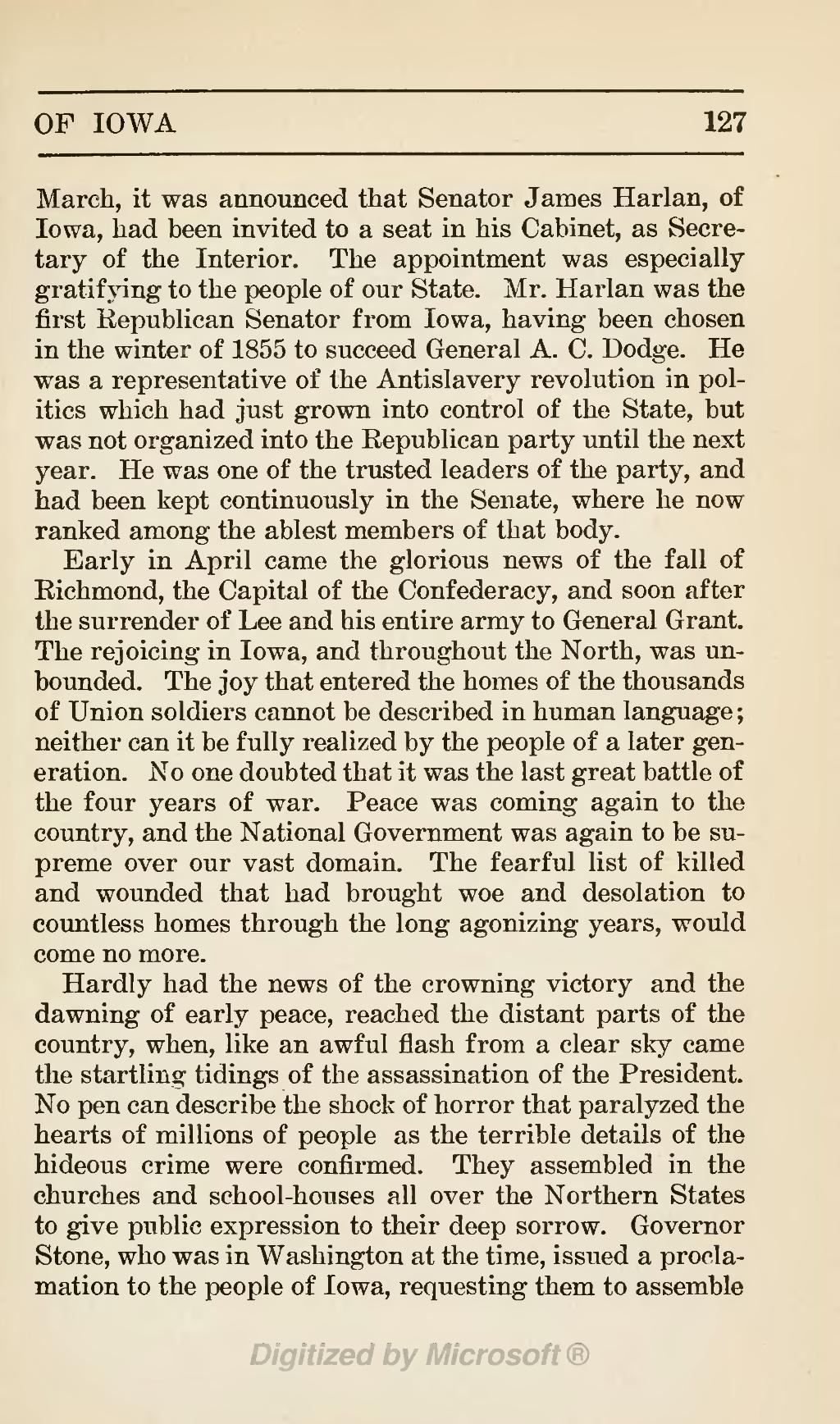March, it was announced that Senator James Harlan, of Iowa had been invited to a seat in his Cabinet, as Secretary of the Interior. The appointment was especially gratifying to the people of our State. Mr. Harlan was the first Republican Senator from Iowa, having been chosen in the winter of 1855 to succeed General A. C. Dodge. He was a representative of the Antislavery revolution in politics which had just grown into control of the State, but was not organized into the Republican party until the next year. He was one of the trusted leaders of the party, and had been kept continuously in the Senate, where he now ranked among the ablest members of that body.
Early in April came the glorious news of the fall of Richmond, the Capital of the Confederacy, and soon after the surrender of Lee and his entire army to General Grant. The rejoicing in Iowa, and throughout the North, was unbounded. The joy that entered the homes of the thousands of Union soldiers cannot be described in human language; neither can it be fully realized by the people of a later generation. No one doubted that it was the last great battle of the four years of war. Peace was coming again to the country, and the National Government was again to be supreme over our vast domain. The fearful list of killed and wounded that had brought woe and desolation to countless homes through the long agonizing years, would come no more.
Hardly had the news of the crowning victory and the dawning of early peace, reached the distant parts of the country, when, like an awful flash from a clear sky came the startling tidings of the assassination of the President. No pen can describe the shock of horror that paralyzed the hearts of millions of people as the terrible details of the hideous crime were confirmed. They assembled in the churches and school-houses all over the Northern States to give public expression to their deep sorrow. Governor Stone, who was in Washington at the time, issued a proclamation to the people of Iowa, requesting them to assemble
